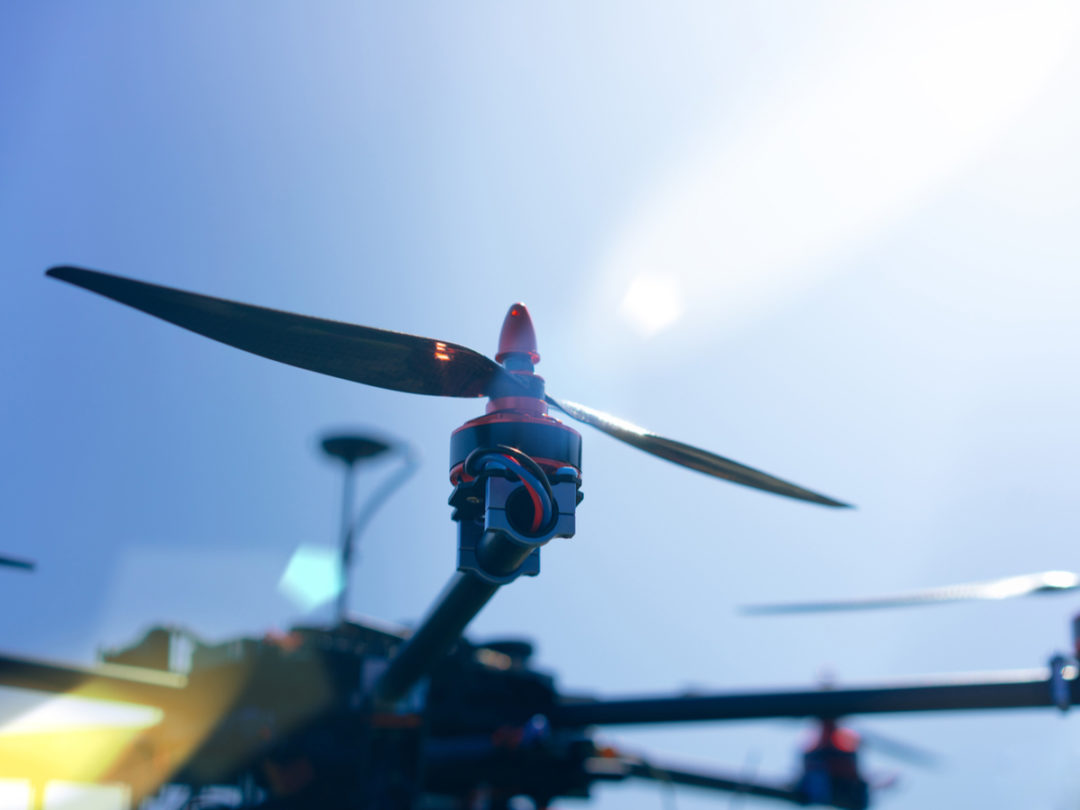
Home » The Healthcare Startup That’s Fast-Tracking Drone Delivery
The Healthcare Startup That’s Fast-Tracking Drone Delivery

March 27, 2020
In early March, a hospital in Rwanda needed blood urgently for a patient with a leg injury. The patient’s blood type was not in stock and the nearest supplies were at least a half day’s drive away. So the hospital called upon a drone operated by Zipline Inc., which dropped the blood by parachute within an hour.
Zipline, a California startup founded in 2014, makes hundreds of deliveries per week to hospitals and clinics in Rwanda and Ghana. Its drones launch from catapults at six distribution centers, carrying blood, medicine, and other supplies, a few pounds at a time. The fixed-wing, battery-powered planes cruise at 60 mph, navigate by GPS, and can fly up to 100 miles round trip. Wires snag them from the sky upon return. Each distribution hub has a fleet of about thirty and can supply an area of 8,000 square miles, delivering up to two tons of freight over the course of a week. Since it began service in 2016, Zipline has flown over a million miles and made more than 60,000 drops.
The company already was planning to launch a service in the United States before the coronavirus outbreak began. It’s on schedule to open a distribution center in North Carolina later this year to help Novant Health, which operates a network of clinics, health centers and hospitals, deliver medicine and supplies to rural and suburban clinics. But as the pandemic begins to strain the U.S. medical supply chain, Zipline is looking into ways to deploy sooner and at wider scale. “If ever there were an urgent need for medical drone delivery, that time is now,” said Justin Hamilton, global head of communications at Zipline. He’s among the tens of millions of people currently housebound in France due to the COVID-19 outbreak there.
“Our first priority is serving customers in Ghana and Rwanda,” said Hamilton. “But we recognize these are extraordinary times and are open to exploring how we can help the United States and countries around the world respond to the pandemic and its after effects.”
The company, Hamilton said, is talking with federal, city and state leaders about how it might help. Any deployment will need a go-ahead from the U.S. Federal Aviation Administration, which only recently has started to grapple with how to integrate unmanned aircraft into U.S. airspace.
“We have received inquiries about expanded drone operations to respond to COVID-19,” FAA spokeswoman Marcia Alexander-Adams said in an email. “We are addressing the inquiries using our existing process.”
While drones are not likely to play a major role in responding to COVID-19 in the U.S., the pandemic has highlighted the advantages of unmanned flight for medical delivery. “There's tremendous potential,” said Basil Yap, Unmanned Aircraft System program manager for the North Carolina Department of Transportation, who is helping to coordinate Zipline's launch there. Drones can help move routine care away from hospitals, reducing crowding and preventing the spread of infections, and can also move vaccines, test kits and other supplies without human contact. “It's just one less vector for transmission,” said Yap, “one less person spreading something.”
Zipline’s North Carolina hub is part of a Federal Aviation Administration pilot program launched in 2017, to evaluate how best to integrate unmanned aircraft into U.S. airways. The state already has one pilot up and running. In March last year, UPS began carrying blood samples from clinics to testing labs at WakeMed hospital campus in Raleigh using drones made by Silicon Valley startup Matternet. Its quad-copters have made more than a 1,000 trips, carrying a few pounds at a time over about a mile.
The state is also working with an Israeli startup, Flytrex, to begin delivering food to a park in the town of Holly Springs. These fledging programs mainly serve to help companies and regulators figure out workable rules for unmanned flight. “We're taking this crawl-walk-run approach, and we're still in the crawl phase,” said Yap. But the COVID-19 outbreak, said Yap, could accelerate that progress. WakeMed is exploring how to expand its drone network faster than planned, to add capacity as COVID-19 cases begin to inundate the hospital system.
“The situation is very dynamic,” Dr. Stuart Ginn, a surgeon who helped to establish the UPS/Matternet pilot, said in an email, “and we anticipate ongoing communication with our partners and with State-level emergency management leadership to determine whether drone technology can augment ongoing efforts.” The state is also working to launch the Flytrex service ahead of schedule with added delivery points.
“The need around fast diagnosis is in sharp focus today with COVID-19,” said Matternet CEO Andreas Raptopoulos in an email. “We believe the need for fast diagnosis and fast delivery of medicine to patients will be even more critical to our healthcare systems in the future.”
Under current FAA regulations, drone operators that fly beyond line-of-sight have to meet agency standards already in place for unscheduled commercial carriers, known as Part 135. This means that drones have to follow the same rulebook as chartered flights, with exemptions for any regulations that do not apply to unmanned flight, such as keeping a flight manual on board or having oxygen for flights above 10,000 feet. UPS was the first carrier to receive a standard Part 135 certificate for drone delivery in fall 2019. Earlier in the year, Alphabet’s Wing Aviation received a single pilot certificate for its drone operation in Blacksburg, Virginia. Zipline is now working toward FAA certification.
The biggest challenge in introducing drones into crowded U.S. airways is keeping them from colliding with other low-flying aircraft, especially those without electronic communication. Human pilots use their eyes for this kind of navigation. Zipline, according to Hamilton, has developed the necessary software to detect and avoid unresponsive aircraft, which it plans to use when it begins service in North Carolina later this year.
Using Part 135 to regulate drones is a kludge until the industry and regulators can agree on something better. “It's going to be another set of rules,” said Yap. Earlier this month, in a list of 10 ways the coronavirus could change the future of the tech industry, the Information wrote that the pandemic might “create a sense of urgency about regulation to open up drone airspace and bot delivery.”
“I am hopeful that during this event, we will see drones make an impact,” said Yap, “It may be small, but we're going to learn a lot of great things for the next pandemic or next emergency.”
RELATED CONTENT
RELATED VIDEOS
KEYWORDS Aerospace & Defense Air Cargo Coronavirus Express/Small Shipments healthcare last mile delivery Middle East/Africa North America Regulation & Compliance robotics Transportation & Distribution
Related Directories
Subscribe to our Daily Newsletter!
Timely, incisive articles delivered directly to your inbox.
Popular Stories
-

-

Diversifying Production From China: Welcome to ‘The Great Reallocation’
-

U.S. Fleet Professionals Look Toward Sustainability to Cut Down on Rising Operating Costs
-

Next-Generation Packaging Brings Reliability and Visibility to Supply Chains
-

In the Transition to Electric Vehicles, Components Sourcing Will Be a Growing Challenge

2024 Supply Chain Management Resource Guide: There's Only One Way Off a Burning Platform
VIEW THE LATEST ISSUECase Studies
-
Recycled Tagging Fasteners: Small Changes Make a Big Impact
-

Enhancing High-Value Electronics Shipment Security with Tive's Real-Time Tracking
-

Moving Robots Site-to-Site
-
JLL Finds Perfect Warehouse Location, Leading to $15M Grant for Startup
-
Robots Speed Fulfillment to Help Apparel Company Scale for Growth